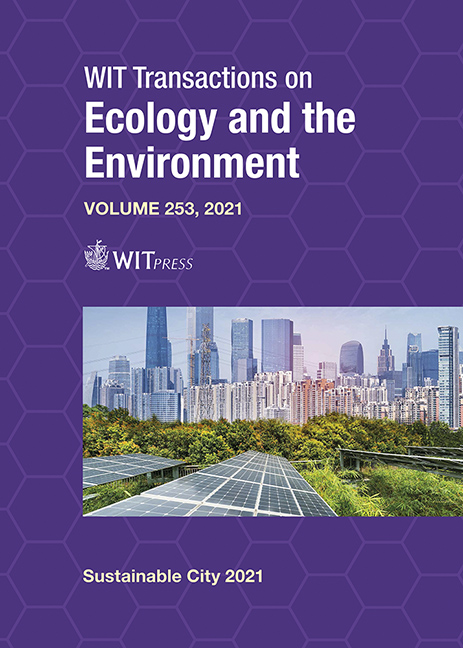ADJUSTED ENERGY BENCHMARKING SYSTEM UNDER COVID CONDITIONS: DUBAI AS CASE STUDY
Price
Free (open access)
Transaction
Volume
253
Pages
12
Page Range
539 - 550
Published
2021
Size
1,601 kb
Paper DOI
10.2495/SC210441
Copyright
Author(s)
JUAN DAVID BARBOSA, MIN LIN, EDWIN RODRIGUEZ-UBINAS
Abstract
Since COVID-19 emerged in late 2019, governments and local authorities have drawn up policies to mitigate the impact of the virus and protect their population. They implement preventive measures that include sanitary guidelines and rules related to people’s mobility and social interactions. Such efforts have disrupted business, educational, and social activities, requiring the adaptation of the people to a new reality that, consequently, has shifted their energy demand patterns. These changes in the energy demand bring challenges to the energy benchmarking efforts, which has been an effective steppingstone for improving the energy performance, allowing users to compare their consumption relative to others and detect the opportunities for improvement from the current state. Also, the changes in the consumption patterns also make it challenging to identify and target underperforming users. Consequently, in this study, we propose an adjusted benchmarking system that accounts for the impact of COVID-19 on the energy consumption patterns of Dubai using available public data. We utilized monthly electrical consumption and dwelling profile data from 1,841 residential buildings between January 2020 and June 2021. We built two different statistical models, a pre-covid and post-covid model, according to different characteristics of the dwellings such as gross floor area, number of users, a cooling source, and time-dependent weather variables such as outdoor temperature. Finally, we compare both models to underline the significance of COVID-19 in the adjusted energy benchmarks. The resulting adjusted model serves to estimate the average consumption of residents in Dubai throughout the year. Furthermore, both models’ difference helps define the adjusted range of the users over/underperforming. The findings and conclusions of this study demonstrate the need for built adjusted benchmarking systems to continue effectively categorizing users’ energy consumption under unusual conditions such as COVID-19.
Keywords
energy consumption, Dubai, COVID-19, energy benchmarks





